How the Covid-19 Pandemic has Affected Low-Income Families in Singapore
[IMPORTANT: Due to the heightened situation of the Covid-19 pandemic, we encourage all Muslims in Singapore to fulfil their zakat remotely via online and digital means. You can choose to fulfil it via our online ePayment, iBanking, AXS machines islandwide, or cheques. For more information, please visit www.zakat.sg. May Allah s.w.t accept our ibadah and may He rid this world of this infection. Amin.]
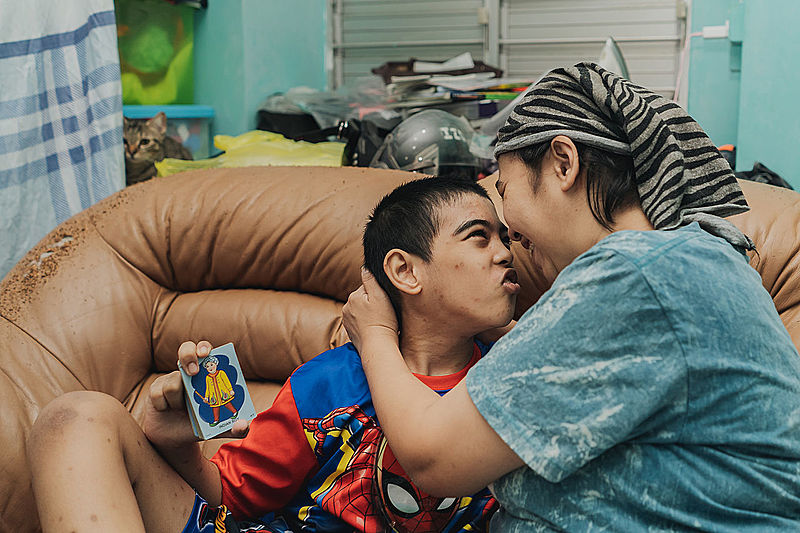
Figure 1 The harsh reality of zakat beneficiaries. The economic impact of Covid-19 has taken a toll on the livelihood of the poor in Singapore.
Only three months into 2020; three incredibly challenging months for the world as the novel coronavirus COVID-19 emerged as a health crisis of international concern.
As this article is being written, death toll has increased to more than 30,000 globally, with over 600,000 confirmed cases, far surpassing that of the SARS outbreak in 2002. The World Health Organisation (WHO) declared the COVID-19 spread as a pandemic, and immediate national measures have since been implemented to curb it.
Looming economic recession

Figure 2 A bustling night scene at last year's Bazaar Geylang Serai. All bazaars this Ramadan have been suspended
Due to the infectious nature of this virus, the COVID-19 crisis has disrupted life as it is. Travelers are cancelling their flights, businesses are forced to make workers stay home, and governments are implementing measures to ‘flatten the curve’— such as nationwide lockdown and self-quarantine exercise. The global health crisis has extended to become a global economic one as well.
As with any health crisis, safeguarding public health is of paramount importance. Unfortunately, the economic slowdown poses problems just as dire and grave.
This concern is especially real for Zakat recipients who make up part of low-income families living from paycheck to paycheck. For these vulnerable individuals and those living on the fringes of society, loss of income due to an outbreak can translate to missed daily meals and severed access to proper healthcare.
There have been more enquiries on zakat financial assistance since the outbreak worsened.
It’s undeniable that any health and economic crisis will disproportionately impact low-income earners and other marginalized groups.
Some jobs cannot be done remotely
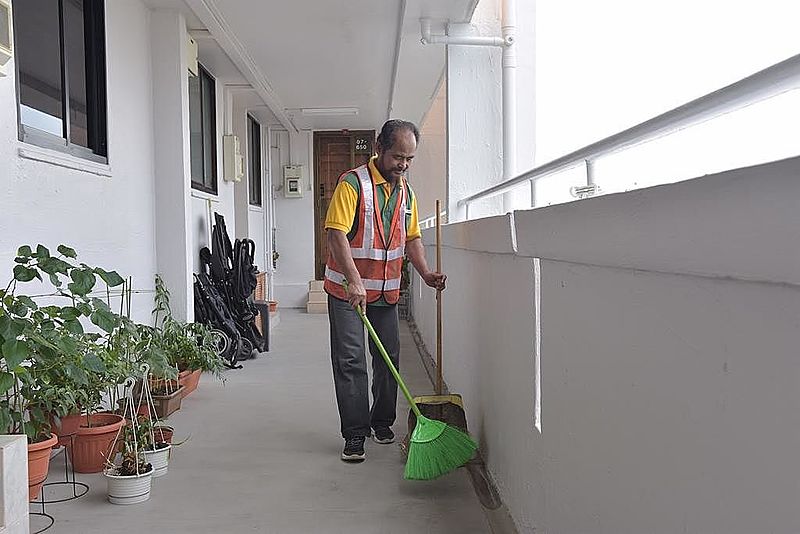
3 Credit: TODAY
Work-from-home for cleaners?
Often, those on the frontlines are required to be physically present for a job. Market-determined or hourly-paid jobs such as janitors, security officers, and retail staff simply cannot be performed remotely.
However, in times of crisis, many find themselves jobless due to the drastic public health measures to ensure containment and prevent aggravation of the virus. Otherwise, they are forced to brave the risks; starkly different from many of us with the privilege of telecommuting.
This has unfortunately become a reality for many of our zakat beneficiaries and recipients, whose source of income is mainly from low-wage jobs that require physical presence.
Despite the expansion of their role during crisis—for example, janitors having to disinfect offices more frequently and being more exposed to the virus—their wages remain the same, if they are not already out of job.
In the words of Nominated Member of Parliament (NMP) Walter Theseira, they are the ones ‘whose market prices are low but social values immeasurable’.
Our vulnerable elderlies
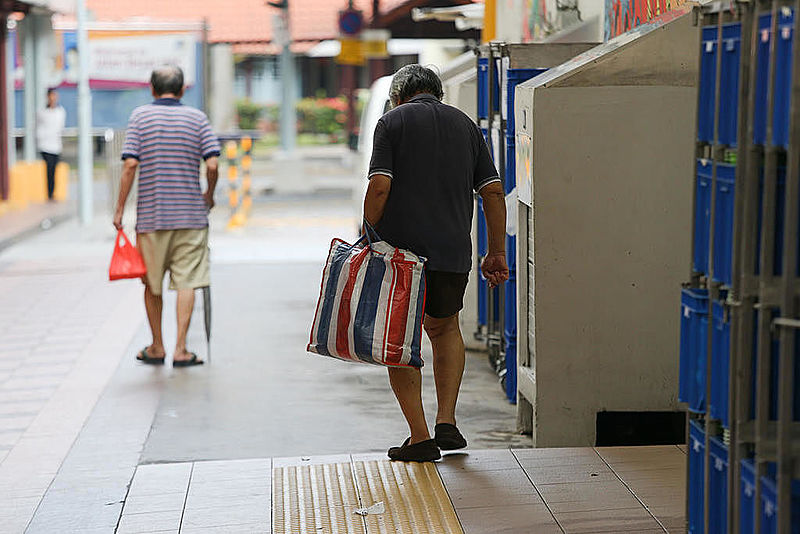
4 Credit: Straits Times
It’s a known fact that COVID-19 is particularly more dangerous for the elderly. Immune function declines with age as the number of white blood cells that find and help eliminate infections lessen. This makes the elderly more susceptible to severe illnesses.
The elderly is also a group with various pre-existing conditions like high blood pressure and other respiratory issues, putting them in bigger risk. Data has shown that the mortality rate of COVID-19 are mostly the aged.
Beyond health, elderlies happen to be among the poorest too and are therefore unable to access medical care as easily and as freely as other Singaporeans.
This poses a large threat to zakat beneficiaries where most recipients of the monthly Zakat Financial Assistance are elderlies – 19% elderly and 34% those with chronic illnesses and kidney patients.
What can we do as a society?
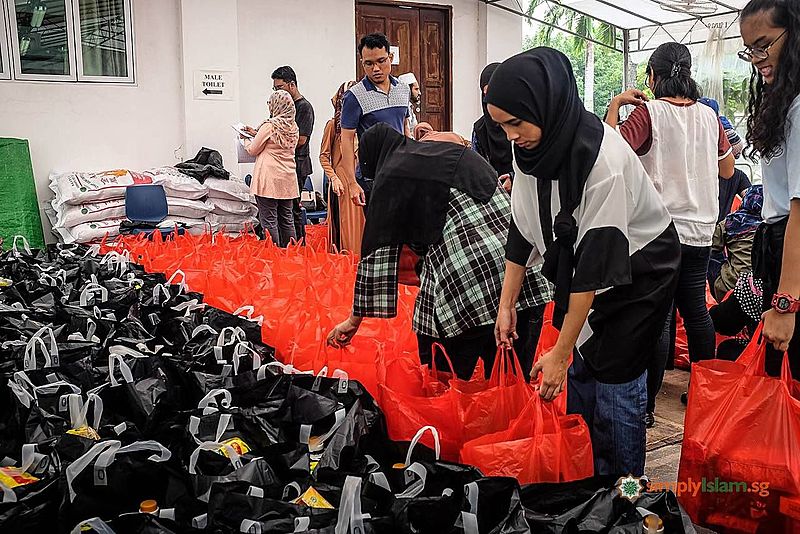
Figure 5 Muslims in Singapore coming together in unity last Ramadan
Credit: Launchgood
Ensuring that the pandemic doesn’t spread as aggressively should be our priority. This means that we should be more socially responsible by avoiding crowded areas and events, observing social distancing, deferring our travels, and practising good personal hygiene.
Mosques island-wide have already been closed temporarily and religious activities are suspended to prevent large social gatherings. There is wisdom behind such a move – many congregants and mosque visitors are elderlies. As they are very vulnerable, it is only responsible to prevent the spread within the community.
Most importantly, we must be civil and avoid selfish behaviors such as panic-buying of groceries and hoarding necessities. Such irresponsibility adversely impacts the underprivileged amongst us as they struggle to sustain, only being able to afford things on a weekly basis.
Remember, social responsibility is a religious responsibility.
As Ramadan approaches
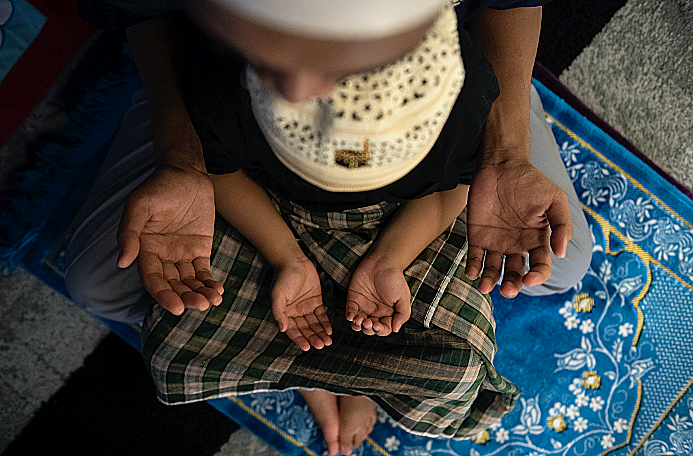
We can only pray and supplicate to Allah s.w.t that by the time Ramadan arrives, the crisis has slowed or died down, InsyaAllah. However, it is all in His will and Allah knows best. Regardless of what the situation may be, it will be a test of our iman and our ability to stay resilient, united, and above all, compassionate with one another.
It’s in such trying times that the true spirit of a community shines. Will it divide us as we scramble to hoard and prevent others from the necessities? Will compassion bind us as we donate food and fulfil our zakat obligation during the holy month? It’s up to us to make good of any situation.
What is the Ramadan spirit?
“A man is not a believer who fills his stomach while his neighbour is hungry.”
Rasulullah s.a.w
Hang in there, everyone, for this too shall pass. Let’s continue our efforts to keep ourselves, our families and our community safe, and make lots of du’a for the situation to ease.
For more information on Zakat
Need assistance from Zakat?
- Visit any of the Social Development Mosques listed here.
Due for your Zakat payment? Click the button below to make payment online.


